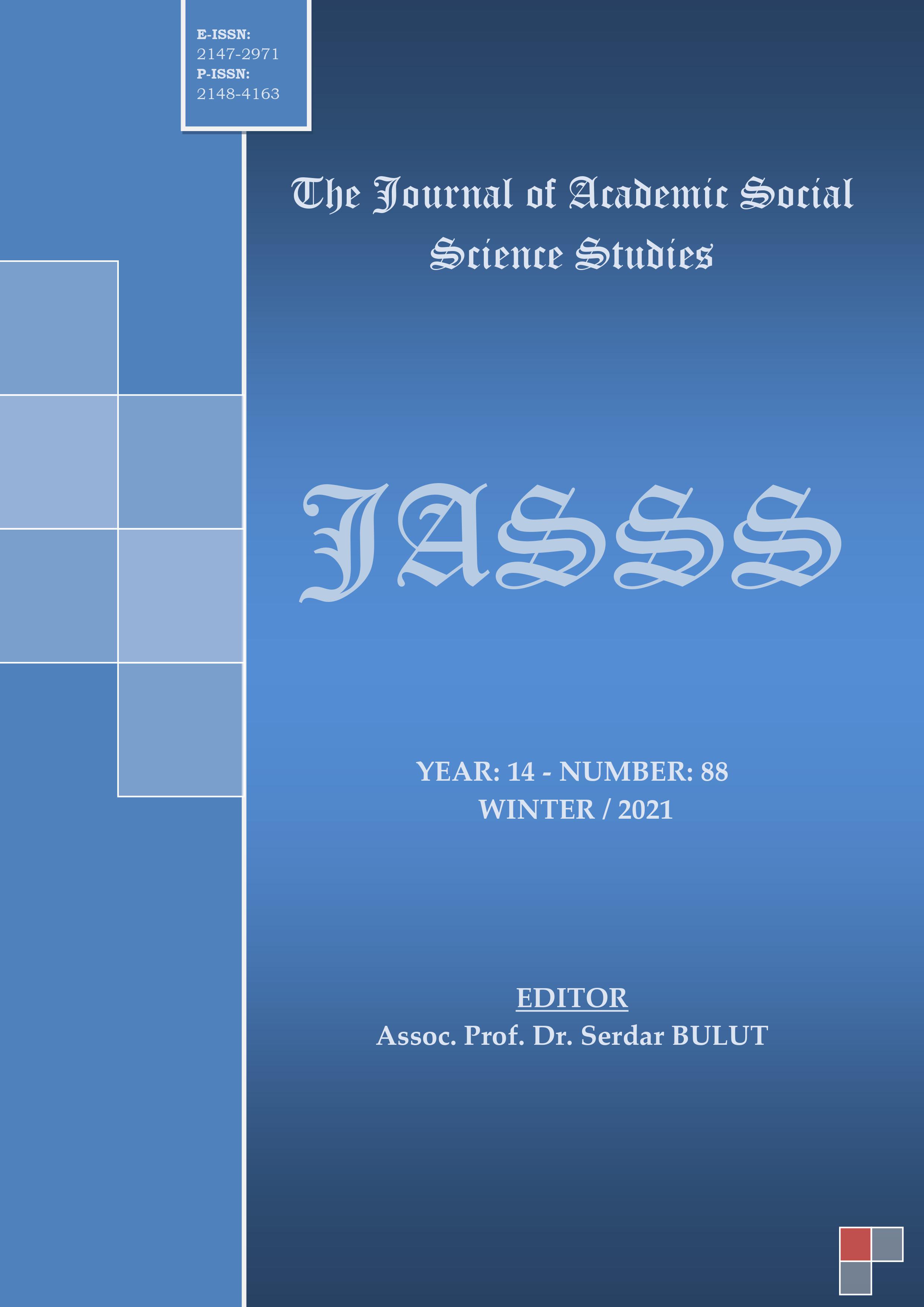Author :
Abstract
Kur’ân-ı Kerîm anlaşılmak ve öğüt almak için nazil olmuştur. Onun hiç bir lafzı rastgele dizilmemiş, her bir kelimesi İlâhî talimatlar doğrultusunda biçimlendirilerek bizzat Hz. Peygamber tarafından okunmuş ve okutturulmuştur. Hz. Peygamber’in vefatından sonra farklı lehçe ve kültürlerle birlikte muhtelif okuyuşlar gittikçe yaygınlaşmış, sahih kıraat şartlarına uymak koşuluyla farklı kıraatlara izin verilmiştir. Buna göre bazı kıraatler, mahalli şive ve ses aksanları ile ilgili olup âyetin anlamında herhangi bir değişikliğe mahal vermezken, diğer bazıları ise harf ve hareke farklılığı nedeniyle anlama kısmen veya tamamen etkide bulunur. Ancak bu farklılık kesinlikle âyetlerde bir çelişki meydana getirmez. Bilakis onlara anlam zenginliği kazandırır. Bu bağlamda Fahreddîn er-Râzî’nin Mefâtîhu’l-gayb adlı tefsîrinde görülen kıraat farklılıkları özellikle de anlama etki eden kıraatlar örneklerle incelenmeye çalışılacaktır. Râzî’nin, dil kaidelerine bağlı kalarak Kur’ân’ı Kur’ân ile nasıl açıkladığı, tercih ettiği kıraatları sahih hadîs, sahabe kavli ve İslâm âlimlerinin görüşlerinden yararlanarak aklî delillerle ne şekilde ispat yoluna gittiği gösterilecektir. Âyetin sebeb-i nüzûlünü, siyak ve sibakını esas alarak farklı kıraatlar arasından hangi gerekçelerle tercihte bulunduğu izah edilecektir. Kıraat imamlarının çoğunluğunun benimsediği kıratı genellikle tercih ettiği, zaman zaman mensup olduğu Şafîî mezhebinin etkisinde kalarak görüşünü ortaya koyduğu ifade edilecektir. Kıraat farklılığına neden olan kelimeyi fonetik yönüyle ele aldığı, müphem lafızları aklî ve naklî delillerle vuzuha kavuşturduğu ve mecbur olmadıkça âyet lafzını mecaz anlama hamletmediği beyan edilecektir.
Keywords
Abstract
The Qur'an was revealed in order to be understood and to receive advice. None of his words were randomly arranged, each word was shaped in accordance with the divine instructions and was sent to the Prophet himself. It was read and taught by the Prophet. After the death of the Prophet, various readings with different dialects and cultures became increasingly widespread, and these different recitations were allowed, provided that they comply with the conditions of sound recitation. Accordingly, some recitations are related to local dialect and sound accents and do not allow any change in the meaning of the verse, while others affect the meaning partially or completely due to the difference in letters and movements. However, this difference certainly does not create a contradiction in the verses. On the contrary, it gives them a wealth of meaning. In this context the differences in recitation seen in Fahreddin er-Râzî's tafsîr called Mefâtîhu'l-gayb will be tried to be examined with examples, especially those that affect the meaning. It will be shown how Razi explained the Qur'an with the Qur'an by adhering to the language rules, and how he tried to prove his preferred recitations by using sound hadith, the opinions of the Companions and Islamic scholars with rational proofs. Based on the reason for the revelation of the verse, beginning and the end, it will be explained why he chose among different recitations. It will be stated that the majority of the imams of recitation generally prefer the recitation, and from time to time, under the influence of the Shafii sect to which they belong, they express their views. It will be stated that Razi deals with the word that causes the difference in recitation with its phonetic aspect, clarifies the ambiguous words with rational and narrative evidence, and does not use the word of the verse to make sense of metaphor unless it is necessary.
Keywords
- Abdülhamîd, M. (1974). er-Râzî müfessiren. Bağdad: y.y.
- Adıgüzel, M. (1998). Kıraatlar Açısından Fahruddîn Râzî ve Tefsîr-i Kebîri. Yayınlanmamış Doktora Tezi. Atatürk Üniversitesi Sosyal Bilimler Enstitüsü. Erzurum.
- Bâzemûl, Muhammed b. Ömer. (1417/1996). el-Kıraat ve eseruhâ fi’t-tefsîr ve’l-ahkâm. (2 Cilt). Riyad: Dâru’l-Hicre.
- Bedir, L. (2017). “Kıraat Farklılıklarının Yoruma Etkisi”. İslam ve Yorum Sempozyumu, Temel Tartışmalar, İmkânlar ve Sorunlar. Aralık, Malatya.
- Birışık, A. (2004). Kıraat İlmi ve Tarihi. Bursa: Emin Yayınları.
- Cassas, Ahmed b. Ali er-Râzî. Ahkâmu’l-Kur’ân. (1405/1985). (M. S. Kamhavî). Beyrut: Dâru İhyai’t- Turasi’l-Arabî.
- Dâmeğânî, Hüseyn b. Muhammed. (1416/1996). el-Vücûh ve’n-nezâir. (M. H. Ebû’l-Azm). (2 Cilt). Kahire: y.y.
- Ebû Davud, Süleyman b. el-Eş’as es-Sicistanî. (1388/1969). Sünen-i Ebû Davud. Beyrut: Dâru’l-Hadis.
- Ebû Zur’a, Abdurrahman b. Muhammed. (1979). Hüccetü’l-kıraat. (S. el-Efganî). 2. Baskı. Beyrut: Müessesetü’r-Risale.
- Ferrâ, Yahya b. Ziyad. (1371/1980). Me‘ani’l-Kur’ân. 2. Baskı. Beyrut: Alemu’l-Kutub.
- Hâleveyh, Hüseyn b. Ahmed. (1414/1996). el-Hücce fi’l-kırââti’s-seb’a. (Tahk. A. S. Mukrim). Beyrut: Müessesetu’r-Risâle.
- İbnü’l-Cezerî, Şemseddin Muhammed b. Muhammed. (1400/1980). Müncidü’l-mukriîn ve mürşidü’t- tâlibîn. Beyrut: y.y.
- İbnü’l-Cezerî, Şemseddin Muhammed b. Muhammed. (2002). en-Neşr fi’l-kırââti’l-'aşr. (2 Cilt). Beyrut: Dârü’l-Kutubi’l-İlmiyye.
- İbn Cinnî, Ebû’l-Feth Osman. (1414/1994). el-Muhteseb fî tebyîn-i vücûhi şevâzi’l-kırâatı ve’l-izâhi minhâ. (Tahk. A. N. Nâsif vd.). (2 Cilt). Kahire: Matbaatu Ehrabu’t-Ticâriyye.
- İbn Hanbel. Ebû Abdillâh Ahmed b. Muhammed.( 1992). el-Müsned. 2. Baskı. İstanbul: Çağrı Yayınları.
- İbn Mâce, Muhammed b. Yezîd el-Kazvinî. (1371/1952). es-Sunen. (Tahk. M. F. Abdulbâki). Kahire: y.y.
- İsfahânî, R. (2017). Müfredât Kur’ân Kavramları Sözlüğü. (Çev. M. Yıldız). İstanbul: Çıra Yayınları.
- Konevi, S. (2002). Fâtiha Suresi Tefsiri. (Çev. E. Demirli). İstanbul: İz Yayıncılık.
- Kurtubî, Muhammed b. Ahmed. (1413/1992). el-Câmi‘ li ahkâmi’l-Kur’ân. Beyrut: Dâru’l-Kutubi’l- İlmiyye.
- Mekkî, Ebû Tâlib el-Kaysî. (1399/1979). el-İbâne 'an me’âni’l-kırâ’ât. nşr. Muhyiddin Ramazan. Dımaşk: Dârü’l-Me’mûn li’t-Türâs.
- Mekkî, Ebû Tâlib el-Kaysî. (1418/1997). el-Keşf an vücûhi’l-kırâât. (Tahk. M. Ramazan). (2 Cilt). yy.:
- Önen, H. (2013). “Kıraatların Fıkhî Hükümlere Etkisi”. Dicle Üniversitesi İlahiyat Fakültesi Dergisi, 15(2), 20-24.
- Râzî, F. (1988.) Mefâtihu’l-gayb (Tefsiru’l-kebîr). (Çev. L. Cebeci vd). (23 Cilt). Ankara: Akçağ Yayınları.
- Taberî, Muhammed b. Cerîr. (2018). Taberî Tefsîri. (Çev. H. Karakaya vd). İstanbul: Hisar Yayınevi.
- Tuğral, R. (1992). “Farklı Kıraatların Tefsir’deki Yeri”. Dokuz Eylül İlahiyat Fakültesi Dergisi, 7/268-281.
- Ünal, M. (2017). Hak Dini Kur’ân Dilinde Kıraatlar. Ankara: Diyanet İşleri Başkanlığı Yayınları.
- Ünal, M. (2002). Kur’ân’ın Anlaşılmasında Kıraat Farklılıklarının Rolü. Yayınlanmamış Doktora Tezi. Ankara Üniversitesi Sosyal Bilimler Enstitüsü. Ankara.
- Yavuz, Y. Ş. (1995). “Fahreddîn er-Râzî”. Türkiye Diyanet Vakfı İslam Ansiklopedis. (Cilt. 12, ss. 89-95). İstanbul: Türkiye Diyanet Vakfı Yayınları.
- Yazır, E. M. H. (1995). Hak Dini Kur’ân Dili. (Tahk. M. N. Çetin vd. (9 Cilt). Ankara: Akçağ Yayınları.
- Zerkeşî, Bedreddin Muhammed b. Abdullah. (1415/1994). el-Burhân fî ulûmi’l-Kur’ân. (Neşr. Y. A. Mar’aşlî vd. (4 Cilt). Beyrut: Dâru’l-Ma'rife.





